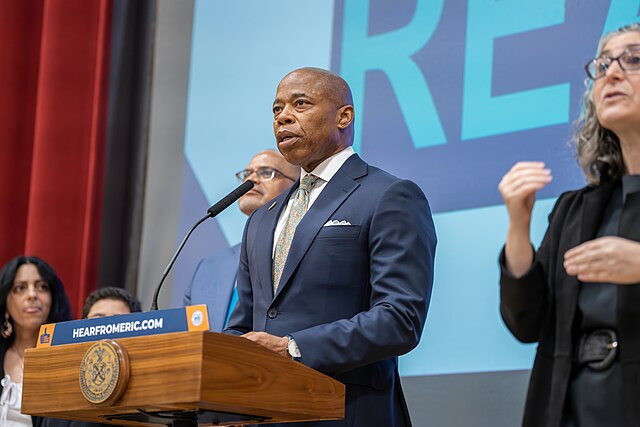New York City Mayor Eric Adams' future hangs in the balance as he awaits a federal judge's decision on whether corruption charges against him will be dismissed while Governor Kathy Hochul considers using her authority to remove him from office. With both legal and political threats converging, Adams faces one of the most critical moments of his career as he seeks to hold onto his position and navigate a difficult re-election campaign.
Judge Dale Ho is currently deliberating whether to grant the Justice Department's request to drop the federal corruption case against Adams, a motion that has raised questions about potential political interference. The charges, which were filed in September, allege that Adams solicited illegal foreign campaign contributions, engaged in bribery, and manipulated financial disclosures to conceal improper benefits. While the DOJ has requested to suspend the case, it retains the option to refile charges later, leaving Adams in a prolonged state of uncertainty.
Meanwhile, Governor Hochul is facing increasing pressure to make a decision on whether to remove Adams from office. The New York city charter allows the governor to oust a mayor "for cause", but the provision has never been used in modern history. Hochul has been consulting with city leaders on the issue, and sources indicate she is weighing whether to let the legal process play out or take decisive action herself.
The uncertainty surrounding Adams has already shaken city government. In the past week alone, four of his top deputy mayors resigned, citing the deepening legal and political crisis. Adams' ties to the Trump administration have also raised concerns among his Democratic allies, as the mayor has reportedly aligned himself with Trump's immigration policies in exchange for the DOJ's leniency.
Critics, including State Senator Zellnor Myrie, have accused Adams of undermining local government autonomy to secure a favorable outcome for himself. "Eric Adams sacrificed our local government's autonomy to save his own skin," Myrie said. Other Democratic officials, including the Brooklyn Young Democrats, have called for his immediate resignation, citing "obvious quid pro quo dealings" between Adams and the Trump administration.
Adams, however, has continued to maintain his innocence and insists that he is focused on running the city. "I'm not afraid of that," Adams said when asked about the possibility of the charges being reinstated. Despite the legal and political turmoil, Adams has continued making public appearances, speaking at events and announcing public safety initiatives in an effort to project stability.
If Hochul decides to remove Adams from office, Public Advocate Jumaane Williams would become acting mayor. If this decision happens before March 26-90 days before the June 24 primary election-a special election would be required to fill the position. However, if Adams remains in office, he faces a challenging re-election campaign in which his legal troubles and ties to the Trump administration are expected to be key issues.
Judge Ho has not provided a timeline for his ruling, but his decision will be critical in determining Adams' next steps. If the case is dismissed, Adams could use the decision to bolster his re-election bid, arguing that the charges were politically motivated. However, if the judge rejects the DOJ's motion and the case proceeds, Adams' political survival will become even more precarious.






